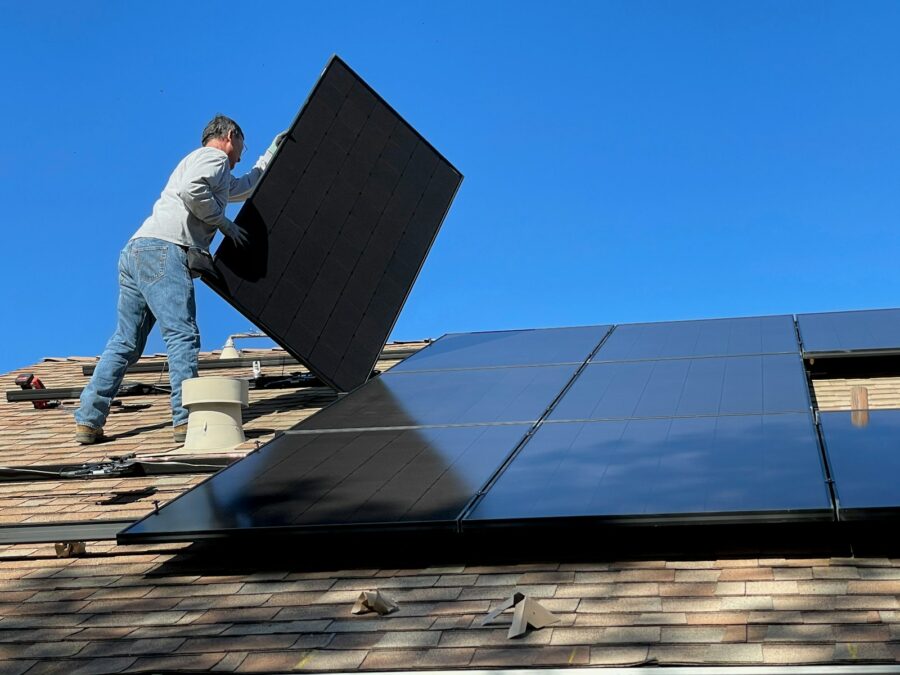The Role of Advanced Materials in Solar Panel Technology
Introduction to Advanced Materials for Solar Panels
In the realm of renewable energy technologies, advanced materials for solar panels play a pivotal role in enhancing durability and efficiency. As nations like Saudi Arabia and the UAE strive to expand their renewable energy portfolios, the development and integration of innovative materials are essential for achieving sustainable energy goals. By leveraging cutting-edge materials science, solar panel manufacturers can overcome durability challenges and drive the adoption of solar power on a global scale.
Saudi Arabia’s commitment to renewable energy, as outlined in Vision 2030, underscores the importance of advanced materials for solar panels in achieving energy sustainability. The kingdom’s vast solar resources make it an ideal candidate for solar power generation, but harsh environmental conditions pose challenges to panel durability. By investing in research and development, Saudi Arabia aims to harness the potential of advanced materials to enhance the longevity and performance of solar panels, ensuring a reliable and resilient energy infrastructure.
The UAE, particularly in cities like Dubai and Abu Dhabi, is also prioritizing the deployment of advanced materials in solar panel technology. With ambitious renewable energy targets and innovative projects underway, the Emirates recognize the significance of advanced materials for solar panels in driving the transition to clean energy. By capitalizing on the latest advancements in materials science, the UAE aims to maximize the efficiency and durability of solar panels, paving the way for a sustainable energy future.
Key Innovations in Solar Panel Materials
The evolution of advanced materials for solar panels encompasses a wide range of innovations aimed at improving durability, efficiency, and cost-effectiveness. One notable advancement is the development of next-generation photovoltaic materials, such as perovskite and thin-film technologies. These materials offer higher conversion efficiencies and greater flexibility, making them ideal for diverse applications and challenging environmental conditions.
Perovskite solar cells, in particular, have garnered significant attention for their potential to revolutionize the solar industry. These materials exhibit excellent light absorption properties and can be fabricated using low-cost manufacturing techniques. In Saudi Arabia and the UAE, research efforts are underway to optimize perovskite-based solar panels for use in desert environments, where extreme temperatures and dust accumulation pose durability challenges. By enhancing the stability and reliability of perovskite materials, researchers aim to unlock new opportunities for solar energy deployment in the region.
Thin-film solar technologies represent another promising avenue for advanced materials for solar panels. These materials offer advantages in terms of flexibility, lightweight, and scalability, making them well-suited for a variety of applications, including building-integrated photovoltaics and portable solar devices. In the Middle East, where rapid urbanization and infrastructure development are driving energy demand, thin-film solar panels offer a versatile solution for integrating renewable energy into architectural designs and urban landscapes.
Executive Coaching and Change Management in Solar Panel Adoption
For business executives and energy industry leaders, understanding and implementing advanced materials for solar panels require effective leadership and change management skills. Executive coaching services can play a crucial role in guiding leaders through the complexities of transitioning to solar energy solutions, fostering innovation, and driving organizational change.
In the Middle East, where solar energy adoption is gaining momentum, executive coaching can help leaders navigate the challenges and opportunities associated with advanced materials for solar panels. This involves developing a strategic vision for renewable energy integration, fostering cross-disciplinary collaboration, and cultivating a culture of sustainability within organizations. Effective communication is also essential, as leaders must articulate the benefits of solar energy adoption to stakeholders, including government entities, investors, and the public.
Change management strategies are critical for overcoming resistance to solar panel adoption and ensuring smooth implementation. By leveraging executive coaching services, organizations can equip their leaders with the skills and knowledge needed to drive successful solar energy projects, manage stakeholder expectations, and mitigate risks. Through effective leadership and change management, businesses can harness the potential of advanced materials for solar panels to achieve long-term sustainability and business success.
The Future of Solar Panel Technology: Artificial Intelligence and Blockchain Integration
Looking ahead, the integration of Artificial Intelligence (AI) and blockchain technology holds immense promise for the future of advanced materials for solar panels. These technologies offer innovative solutions for optimizing solar panel performance, enhancing durability, and ensuring transparency and efficiency in the energy sector.
AI algorithms can analyze vast amounts of data to optimize the design, manufacturing, and deployment of solar panels. In Saudi Arabia and the UAE, AI-driven predictive maintenance systems are being developed to monitor the health and performance of solar installations, preempting potential issues and maximizing uptime. This capability is crucial for ensuring the long-term reliability and durability of solar panels in harsh environmental conditions.
Blockchain technology, with its decentralized and transparent nature, is revolutionizing energy transactions and supply chain management. In the solar energy sector, blockchain can facilitate peer-to-peer energy trading, enable secure payments, and track the origin and quality of solar panel materials. By implementing blockchain-enabled solutions, manufacturers can ensure the traceability and authenticity of advanced materials for solar panels, enhancing confidence among consumers and investors.
In conclusion, advanced materials for solar panels are essential for enhancing durability and efficiency in solar energy production. By leveraging cutting-edge materials science and innovative technologies, countries like Saudi Arabia and the UAE can accelerate the transition to clean and sustainable energy sources. Through effective leadership, change management, and the integration of AI and blockchain, businesses can harness the full potential of solar panel technology to create a brighter and more sustainable future.
#AdvancedMaterials #SolarPanels #RenewableEnergy #SaudiArabia #UAE #Riyadh #Dubai #EnergyInnovation #Leadership #ChangeManagement #ExecutiveCoaching #ArtificialIntelligence #Blockchain

